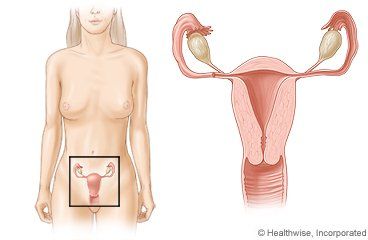E D U C A T I O N
PREGNANCY
P R E G N A N C Y
Learning About Future Pregnancy and Diabetes
How can you plan for pregnancy when you have diabetes?
Women who have diabetes are more at risk for having miscarriages. And they are more likely to have babies with birth defects. This is mainly true if blood sugar is not kept in the target range during the early part of pregnancy. You can take steps before you are pregnant to help manage your diabetes. This will help make sure that both you and your baby stay healthy.
Things to do
Check your blood sugar often. This is so you will know if your blood sugar is under control. Get your blood sugar in your target range. The target range for women who are not pregnant but have diabetes is an A1c level less than 7.0%. Start taking a folic acid supplement. Ask your doctor or midwife about the amount that is right for you. See a doctor or certified nurse-midwife for an exam. Discuss the medicines and supplements you take. Talk about your diabetes history or other concerns you have. Keep track of your menstrual cycle. This helps you know the best time to try to get pregnant. Take only the medicines your doctor or midwife says are okay. Eat a healthy diet. Exercise regularly. That will help you handle the demands of pregnancy, childbirth, and recovery.
Things to avoid Avoid
nonsteroidal anti-inflammatory drugs (NSAIDs), such as ibuprofen or aspirin, unless your doctor tells you to take them. Avoid caffeine, alcohol, and illegal drugs. Do not smoke. Smoking can harm your baby. And it increases the chances that you will have problems from diabetes. If you need help quitting, talk to your doctor about stop-smoking programs and medicines. These can increase your chances of quitting for good.
What else should you think about?
Before trying to get pregnant:
Have your doctor check for problems from diabetes, such as eye or kidney disease. When you are pregnant, these problems can get worse. Get any vaccines you might need. This will help prevent infections such as rubella or measles that can cause birth defects or miscarriage. Talk with your doctor about whether to have screening tests for diseases that are passed down through your family (genetic disorders). See your dentist. Take care of any dental work you may need.
What if you think you might be pregnant?
You can use a home pregnancy test as soon as the first day of your first missed menstrual period. As soon as you know you're pregnant, check with your doctor. At your first prenatal visit you will get information on how to care for yourself and your growing baby.
Gestational Diabetes: Care Instructions
Your Care Instructions
Gestational diabetes can develop during pregnancy. When you have this condition, the insulin in your body is not able to keep your blood sugar in a normal range. If you do not control your blood sugar, your baby can grow too big. Most of the time, gestational diabetes goes away after a baby is born. But if you have had gestational diabetes, you have a greater chance of having it in a future pregnancy and of developing type 2 diabetes. To check for diabetes, you may have a follow-up glucose tolerance test 6 to 12 weeks after your baby is born or after you stop breastfeeding your baby. You may be able to control your blood sugar with a healthy diet and regular exercise. Staying at a healthy weight also may keep you from getting type 2 diabetes later on. If diet and exercise do not lower your blood sugar enough, you may need to take insulin shots. Insulin is safe during pregnancy. Follow-up care is a key part of your treatment and safety. Be sure to make and go to all appointments, and call your doctor if you are having problems. It's also a good idea to know your test results and keep a list of the medicines you take.
Gestational Diabetes Diet: Care Instructions
Your Care Instructions
Gestational diabetes is a form of diabetes that can happen during pregnancy. It usually goes away after the baby is born. Diabetes means that your pancreas can't make enough insulin or your body does not use insulin properly. Insulin helps sugar enter your cells, where it is used for energy. You may be able to control your blood sugar while you are pregnant by eating a healthy diet and getting regular exercise. A dietitian or certified diabetes educator (CDE) can help you make a food plan. This plan will help control your blood sugar and provide good nutrition for you and your baby. If diet and exercise don't lower or control your blood sugar, you may need insulin shots. Insulin is safe to use while you are pregnant. Follow-up care is a key part of your treatment and safety.
Be sure to make and go to all appointments, and call your doctor if you are having problems. It's also a good idea to know your test results and keep a list of the medicines you take.
Care instructions adapted under license by Alliance In Health Diabetes Control Center. This care instruction is for use with your licensed healthcare professional. If you have questions about a medical condition or this instruction, always ask your healthcare professional. Healthwise, Incorporated disclaims any warranty or liability for your use of this information.
LEARN MORE



